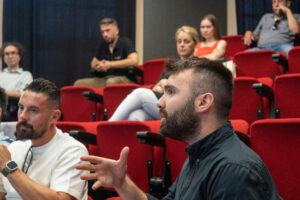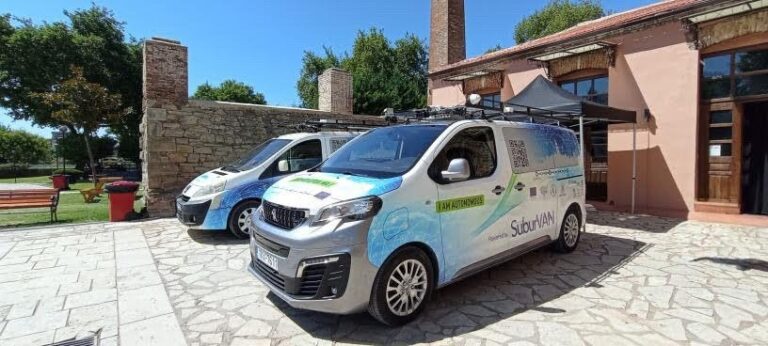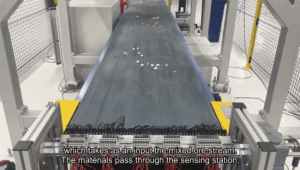On June 28th, e-trikala and I-SENSE Group/ICCS hosted an insightful ‘Awareness Event’, engaging local stakeholders on the transformative impact of Cooperative, Connected, and Automated Mobility (CCAM) integration in Greece’s first digital city, Trikala. Participants explored advanced technologies and the potential benefits of integrating automated vehicles and CCAM services to enhance Trikala’s smart infrastructure, aiming to improve safety and efficiency in the city’s transportation system.
 Christos Ballis from our team presented the IN2CCAM project, showcasing the Trikala Living Lab’s innovative use cases. The event featured a range of demonstrations, from simulations at the Remote Control Centre to real-world applications such as Green Light Optimal Speed Advisory (GLOSA), Vulnerable Road User (VRU) detection, and a journey planner for Connected and Autonomous Vehicles (CCAVs). This interactive platform allowed for in-depth discussions on technical issues, governance, legal frameworks, and business models crucial for CCAM implementation.
Christos Ballis from our team presented the IN2CCAM project, showcasing the Trikala Living Lab’s innovative use cases. The event featured a range of demonstrations, from simulations at the Remote Control Centre to real-world applications such as Green Light Optimal Speed Advisory (GLOSA), Vulnerable Road User (VRU) detection, and a journey planner for Connected and Autonomous Vehicles (CCAVs). This interactive platform allowed for in-depth discussions on technical issues, governance, legal frameworks, and business models crucial for CCAM implementation.
The Trikala Living Lab
The Trikala Living Lab aims to enhance the efficiency and safety of the city’s urban transportation by improving a fleet of on-demand Connected and Automated Vehicles (CAVs) and developing additional C-ITS solutions. The CAVs will operate on a predefined route that links the city centre’s rail station to the university campus in the suburbs of Trikala. Passengers will have the ability to request rides with the CAVs and get around using a mobile app.
To reach its objectives, e-Trikala and ICCS will:
- Collect real-time traffic data from the city network to improve traffic light signal timings along the AV’s route.
- Enhance the safety of the service at a key location of the route thanks to Vulnerable Road Users (VRU) warning messages.
- Allow ride requests and bookings through a user-friendly mobile app that seamlessly integrates with Trikala’s existing smart services.
- Run simulations to explore future scenarios involving the widespread adoption of automated vehicles and assess their effects on the environment and traffic.
The event on June 28th marked a significant step forward in Trikala’s journey towards becoming a leading smart city in urban mobility innovation.







